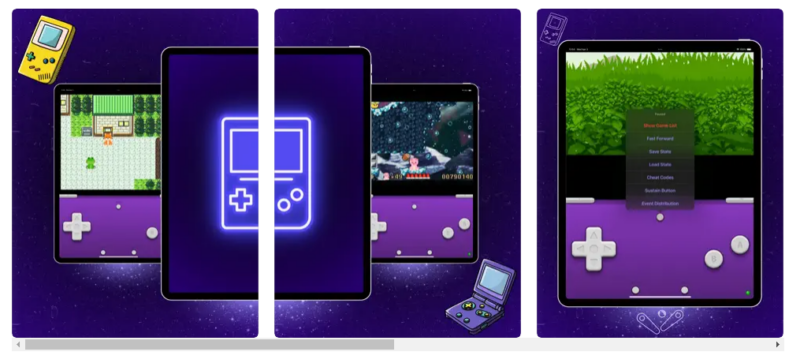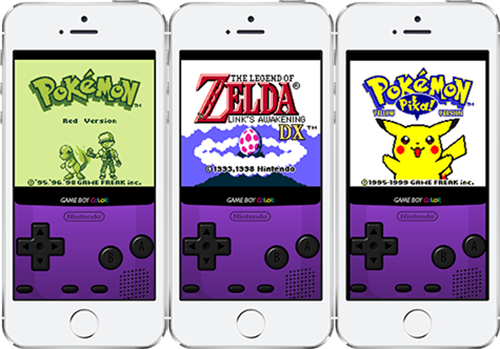
Over the weekend, developer Mattia La Spina launched iGBA as one of the first retro game emulators legitimately available on the iOS App Store following Apple’s rules change regarding such emulators earlier this month. As of Monday morning, though, iGBA has been pulled from the App Store following controversy over the unauthorized reuse of source code from a different emulator project.
Shortly after iGBA’s launch, some people on social media began noticing that the project appeared to be based on the code for GBA4iOS, a nearly decade-old emulator that developer Riley Testut and a partner developed as high-schoolers (and distributed via a temporary security hole in the iOS App Store). Testut took to social media Sunday morning to call iGBA a “knock-off” of GBA4iOS. “I did not give anyone permission to do this, yet it’s now sitting at the top of the charts (despite being filled with ads + tracking),” he wrote.
GBA4iOS is an open source program released under the GNU GPLv2 license, with licensing terms that let anyone “use, modify, and distribute my original code for this project without fear of legal consequences.” But those expansive licensing terms only apply “unless you plan to submit your app to Apple’s App Store, in which case written permission from me is explicitly required.”

Images from the original, circa 2014 version of GBA4iOS.
“To be clear, I’m not pissed at the developer [of iGBA],” Testut added on social media. “I’m pissed that Apple took the time to change the App Store rules to allow emulators and then approved a knock-off of my own app.”
Hurry up and wait
MacRumors reports that Apple cited two sections of its App Store guidelines in removing iGBA: one related to spam (Section 4.3) and one related to copyright (section 5.2). Right now, it’s a bit ambiguous whether the copyright violation refers to the copyright on the emulator source code itself or the emulator’s ability to easily play copyrighted games from Nintendo and others.
As we discussed earlier this month, the wording of Apple’s recent App Store guidelines update makes it unclear if developers can release general-purpose emulators with the ability to play ROMs they don’t control the rights to. Aside from iGBA, a Commodore 64 emulator named Emu64 XL and built off of the open source VICE project was recently launched on the iOS App Store.
Apple has yet to respond to a request for comment from Ars Technica. But Testut wrote early Monday morning that “to Apple’s credit, though, once they were aware of the issue, they did take it seriously. So I really don’t believe this was malicious at all — just an unfortunate situation for everyone involved.” Testut added that iGBA maker La Spina “reached out to me via email to personally apologize for the mess. So no hard feelings there.”
But Testut did have some hard feelings regarding Apple’s treatment of AltStore, an alternative marketplace for sideloading iOS apps that he’s trying to launch under the EU’s new regulations. That would provide Testut with a legitimate way to distribute Delta, a “sequel” to GBA4iOS that emulates many classic Nintendo consoles on Apple devices.
“My frustration stemmed entirely from the fact we’ve been ready to launch Delta since last month,” Tetstut wrote on social media. “This whole situation could’ve been avoided if Apple hadn’t delayed approving us until after changing their rules to allow emulators.”
